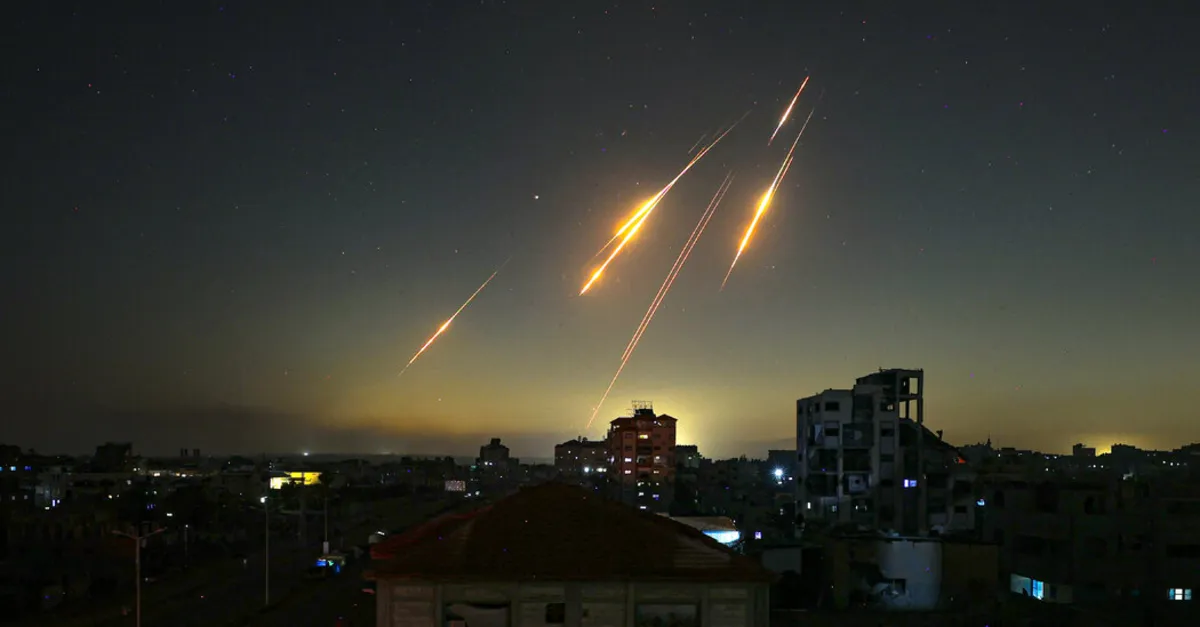
The recent escalation in hostilities between Israel and Iran marks one of the most intense outbreaks of violence in decades, provoking widespread international anxiety regarding the potential for a deadly conflict. This ongoing struggle could draw in major powers, including the United States. The Israeli military's attacks coincided with U.S.-Iran negotiations aimed at curbing Iran's nuclear program, a point of contention as Israel views Iran as its primary regional adversary.
On Saturday morning, residents of Tehran reported hearing explosions as Iranian air defenses were activated. The Israeli military confirmed a series of strikes targeting air defense systems surrounding the Iranian capital. Reports indicated that the strikes had hit a military jet hangar at Tehran's Mehrabad Airport, among other locations. Although precise casualty figures are yet to be verified, Iran's U.N. ambassador reported that the strikes resulted in the deaths of 78 people and injured over 300 others.
In response to Iranian missile attacks, which led to casualties in central Israel, residents sought refuge in reinforced bomb shelters as air-raid sirens sounded. Israeli emergency services reported at least two fatalities and around 19 injuries due to the missile strikes. The atmosphere of fear and confusion was palpable, with images of damaged homes circulating widely.
Iran’s supreme leader, Ayatollah Ali Khamenei, condemned the Israeli attacks, asserting that Iran was retaliating for what he termed an assault. The Islamic Revolutionary Guards Corps claimed that the targets of their missile strikes were Israeli military bases responsible for operations against Iran. Israeli Prime Minister Benjamin Netanyahu has vowed to continue the military campaign for as long as necessary, declaring that Iran has never been weaker.
The involvement of the United States in the escalating conflict remains uncertain. While Israeli officials anticipated support from the Trump administration, Secretary of State Marco Rubio denied any U.S. involvement in recent strikes. However, President Trump refrained from condemning Israel's actions, indicating a complex diplomatic landscape.
Significant casualties were reported among high-ranking Iranian military officials during the attacks, including the deaths of key figures involved in Iran's nuclear negotiations with the United States. The Israeli strikes also reportedly damaged critical nuclear facilities, including the aboveground enrichment plant in Natanz, leading to concerns about radiological contamination.
Despite the destruction, the International Atomic Energy Agency (IAEA) reported that the levels of radioactivity outside the Natanz facility remained unchanged, indicating no immediate risk to the public. However, the situation has raised alarms about the potential long-term health impacts of uranium exposure and the implications for regional security.
As the conflict escalates, public sentiment in Iran has turned to fear and anger. Many civilians are struggling to cope with the realities of war, highlighting the vulnerability of women, children, and the elderly. Reports from Tehran depict a populace grappling with the uncertainty of their safety and the impacts on daily life.
Activists and journalists have voiced concerns about the civilian toll of the conflict, emphasizing that many victims of the strikes were not involved in military operations. The attacks have drawn parallels to the Iran-Iraq war of the 1980s, sparking collective fear among the populace.
With tensions rising, the potential for broader conflict looms. Various factions within the U.S. political landscape are divided over the direction of America's foreign policy, particularly regarding Israel's military actions. Some Republican leaders support Israel's right to defend itself, while others express concern that U.S. involvement could escalate the conflict further.
The international community remains watchful as the situation develops, with calls for dialogue and diplomacy underscoring the urgent need for a resolution. The stakes are high, as any miscalculation could lead to a wider regional conflict, drawing in other global powers and exacerbating an already volatile situation.
As the conflict between Israel and Iran continues to unfold, the global community must prioritize diplomatic solutions to avert further violence. With tensions at an all-time high, the implications of this conflict extend beyond the immediate region, posing significant risks to international peace and security.